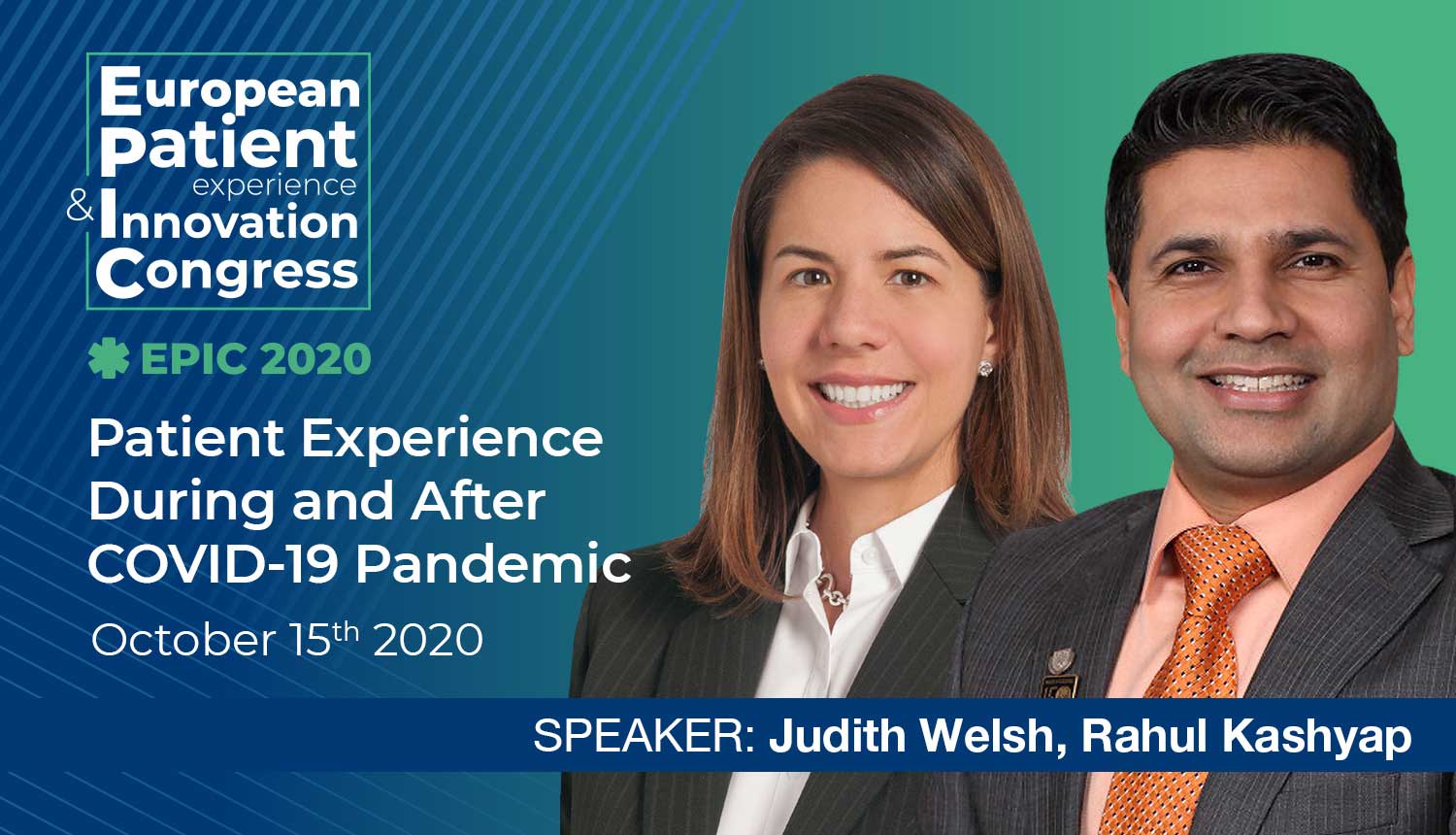
Patient Experience During and After COVID-19 Pandemic

October 15th 2020 at 6.00 pm CEST
Patient Experience During and After COVID-19 Pandemic
Rahul Kashyap, MBBS, MBA
Assistant Professor, Mayo Clinic
Lead Investigator, VIRUS: COVID-19 Registry https://sccmcovid19.org/
The COVID-19 pandemic has changed the world and it still does. Changes are happening in all fields but when we talk about health and patient care, things are changing almost instantly. Regardless of the current situation, the pandemic will change the patient experience for years to come. It is up to the people to draw the positive out of all this and continue to go and progress towards it. Do we want to sit idly by and be helpless or do we want to be enterprising, take all in our power and draw good teachings, lessons and make healthcare another miracle in the world.
Learning Objectives:
- To gain insight on COVID-19 pandemic’s enduring impact on patient experience
- To set strategy for enhanced patient experience in year 2021 and beyond
Judith Toski Welsh, MD, FACEP| Associate Chief Experience Officer
Cleveland Clinic Community Care
The Cleveland Clinic promises every patient that we will keep them safe, care for them as a person, partner with them, and make the care journey easier. These promises guide our process and policy and keep our patients at the center of everything that we do. The outbreak of COVID-19 forced many abrupt changes to the practice of medicine at Cleveland Clinic – from cessation of elective procedures, to changes in visitation, to development of surge capacity. The Office of Patient Experience supported the teams making these rapid changes by leveraging a combination of empathy, standardized communication, and technology to bridge the gaps made by COVID-19. In this presentation, I’ll discuss how we kept our promises and forged new paths to an even better experience.
About the Speakers
Dr. Rahul Kashyap is a physician scientist in Critical Care Medicine, and holds academic rank of Assistant Professor of Anesthesiology at the Mayo Clinic, Rochester, Minnesota, USA. Dr. Kashyap has completed post-doctoral research fellowship in Emergency Medicine and senior research fellowship in Critical Care Medicine at Mayo Clinic. He is a Faculty with the Mayo Clinic Alix School of Medicine and Mayo Clinic Quality Academy. He is a MBA graduate from Augsburg University, Minneapolis, USA. He has published 230+ articles in prestigious peer-reviewed journals. He has written book titled ‘Mayo Clinic Critical Care Case Review’. Dr. Kashyap is Principle/co- Principle investigator of several global projects, e.g. CERTAIN (www.icertain.org) and presents his work at NIH via SCCM Discovery meetings. He is an award-winning public speaker. He has received awards for exemplary research, quality improvement and leadership. His research interest consists of Sepsis, Septic Shock, ARDS, Medical errors and Checklist. He has enjoyed coaching and mentoring residents, clinical fellows and young faculty members and teaches clinical research methodology in China, India, Indonesia, Philippines, UAE, USA and Viet Nam for more than a decade.
Judith Toski Welsh, MD is a graduate of the Jacobs School of Medicine and Biomedical Sciences in Buffalo, NY. She trained in Emergency Medicine at the State University of New York at Buffalo Hospital Consortium. She earned a Bachelor of Arts degree in Science, Medicine, and Culture from Johns Hopkins University. Dr. Welsh is the Associate Chief Experience Officer at Cleveland Clinic. She focuses on improving clinician communication and strengthening teamwork among caregivers to improve patient experience, quality and safety. She is also a practicing emergency physician who has worked in community and academic departments. She is an assistant professor of medicine at Case Western Cleveland Clinic Lerner College of Medicine, a clinical assistant professor of pediatric emergency medicine at Ohio University, and a Fellow of the American College of Emergency Physicians. She also directs the Community Paramedicine program which eases chronically ill patients’ transition from hospital to home and improves access and quality of care, while reducing the need for hospital readmission.
We will not share your details, check out our User agreement privacy policy and cookie policy
